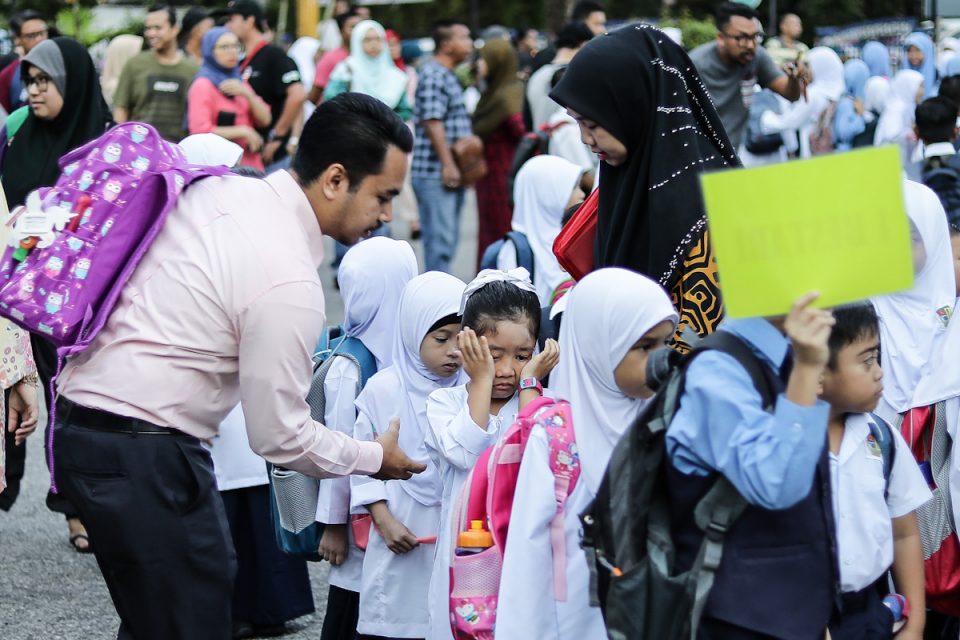PUTRAJAYA, Sept 9 — A total of 122,062 Year 1 students across the country were selected to go through a Literacy and Numeracy Intervention Programme starting last month, to help them acquire reading, writing and arithmetic skills (3R).
Education director-general Azman Adnan said the students were screened by their teachers after three months of teaching and learning (PdP) in Year 1 and were identified as having not reached TP1 (Proficiency Level 1) for the subjects of Malay and Mathematics.
“From a total of 448,113 pupils in the Year 1 cohort, we screened through assessment and Classroom Assessment (PBD),and the children who obtained at least one level in one field numbered 122,062 pupils
“Of the 122,062 screened, 62,928 students were found not to have met the literacy and numeracy level; 45,465 students did not meet literacy level; and 13,669 students have not yet acquire the numeracy level,” he said at a special press conference here today.
Azman said the three groups of students will be given intervention based on the minimum level of skills they have obtained, and the teachers will implement the intervention programme for three months starting last month.
“Students will be grouped according to those who are not competent and we will give interventions based on kit modules or suitable reading materials by the teachers.
“After three months, an assessment will be made and students who have acquired the required level of literacy and numeracy will return to mainstream classes, while those who have not reach the required level will continue to be given appropriate intervention until they acquire above the minimum for them to return to the classroom,” he said.
According to Azman, the Literacy and Numeracy Intervention Programme is one of the four initiatives implemented by the Education Ministry to improve curriculum interventions in an effort to address the issue of dropouts, which is under the early literacy and numeracy detection initiative.
He said the other three initiatives are curriculum restructuring; parent-friendly PBD reporting; and training for teachers, which has been implemented since March.
Azman said the ministry is committed to ensuring that the curriculum interventions being implemented can have a positive impact on students’ learning experience as well as the quality of education as a whole.
“The restructured curriculum is expected to meet the needs and learning styles of students through the provision of relevant learning materials.
“The support of the community including parents and other stakeholders is expected to ensure the success of this initiative,” he said.
— Bernama





